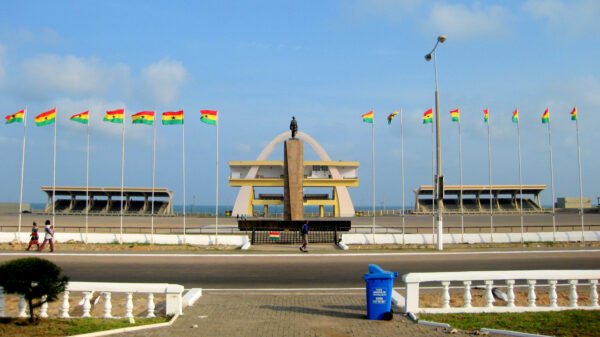As part of the UK’s LGBT History Month, the 14th annual National Student Pride event took place this weekend at the University of Westminster in London. Over the course of the weekend, students from across the UK and around the world came together to participate in a series of empowering events and discussions in celebration of the LGBT+ community.
National Student Pride was born in Oxford 14 years ago, in response to a talk given by the Christian Union, entitled ‘Homosexuality and the Bible’ which was largely perceived as uninformed and homophobic. In response, National Student Pride was established to instigate debate and include progressive voices. Student Pride maintains that faith and sexuality can co-exist to fight discrimination together. This chasm precipitated the creation of an inclusive, triumphant event for LGBT+ students to partake in each year.
A series of panel conversations over the weekend of the 14th annual event tackled issues specific to the LGBT community as well as broader themes like intersectionality, race, and representation.
Fighting for social revolution
One of the first panel discussions on Saturday afternoon considered the legacy of the 1969 Stonewall Riots and the future of activism. Peter Tatchell, a leading member of the Gay Liberation Front in the late 60s and 70s, was particularly eloquent as he spoke of the nuances of fighting for equality in a fundamentally unjust system.
“Our agenda at the beginning was to make a coalition of the marginalised, coming together on the basis of unity and strength,†Peter Tatchell said. “Equality is a problematic concept, the agenda must be about social revolutionâ€.
Pride, not Prejudice
Intersectionality, once an esoteric academic term, was used casually in these conversations. Paris Lees, an English journalist and transgender rights activist, spoke of the challenging nature of fractions within the feminist movement, where some “use feminism as an excuse for bigotry.â€
Paula Akpan, the founding director of Black Girl Festival, emphasised the importance of pioneering structural change in university spaces, “decolonising†curriculums and pushing for inclusion and diversity in all spaces. “The only social reform worth fighting for is the one that will affect the individual,†she said.
The sentiment resonated. The ‘Pride not Prejudice’ panel touched on challenging themes including shades of racism and discrimination within the LGBT community itself. Operating easily within the often-polarising discourses of race and privilege, it was enriching to witness a panel discussion infused with deep mutual respect, understanding and intelligence. These activists embodied composure, strength and eloquence.
Moud Gouba, a Zimbabwean lesbian, refugee, and founder of UK Black Pride ended a profound discussion on challenging bigotry and refusing to let impartiality give a platform to hate, with this: “we need to be uncomfortable. Don’t be shy to challenge ignorance…equality is not leaving anyone behind.â€
Sir Ian Mckellan on MeToo, drugs and coming out
Saturday’s highlight was a frank discussion between British icon Sir Ian Mckellan, and Evan Davis, for the #QueerAF podcast. The pair discussed drugs, coming out, the MeToo movement and chemsex in an enlightening, charming insight into Mckellan’s relationship with the LGBT community.
The audience was enthralled by Mckellan’s unrelenting wit. He quipped at one point that “one of the reasons I became a professional actor is because I learn that I could meet queers in the theatreâ€.
Mckellan spoke of being prompted to come out at age 48 by Magaret Thatcher’s controversial section 28 of the Local Government Bill, which proposed banning the “promotion†of homosexuality by local authorities and in Britain’s schools. This involved forbidding councils from stocking libraries with literature or films that contained gay or lesbian themes. The bill was widely perceived as a draconian attack on the burgeoning gay rights movement. Section 28 was enacted despite immense backlash, and remained on the statute books until 2003 in England and Wales.
McKellan also touched on the MeToo movement, stating he was “waiting for someone to accuse him of somethingâ€. He continued saying he thought that if people like Kevin Spacey hadn’t had to be in the closet in the film industry, they wouldn’t have started abusing people. It was a surprisingly offbeat comment that garnered a mixed response from the crowd. Mckellan elaborated that it is impossible to be completely black and white about such a polarising, sensitive issue.
The overall mood of 2019 National Student Pride was defiantly jubilant. Students have always been the vanguard of change, debating these issues ad nauseam. It’s refreshing to be amongst youthful idealism, and to have icons of older generations expressing their faith in oft-disparaged millennials. It’s a dialogue that isn’t offered to us by mainstream media particularly often. The 2019 National Student Pride weekend was an extremely important event. Fifty years on from Stonewall a lot has changed, but the fight for equality goes on.

















